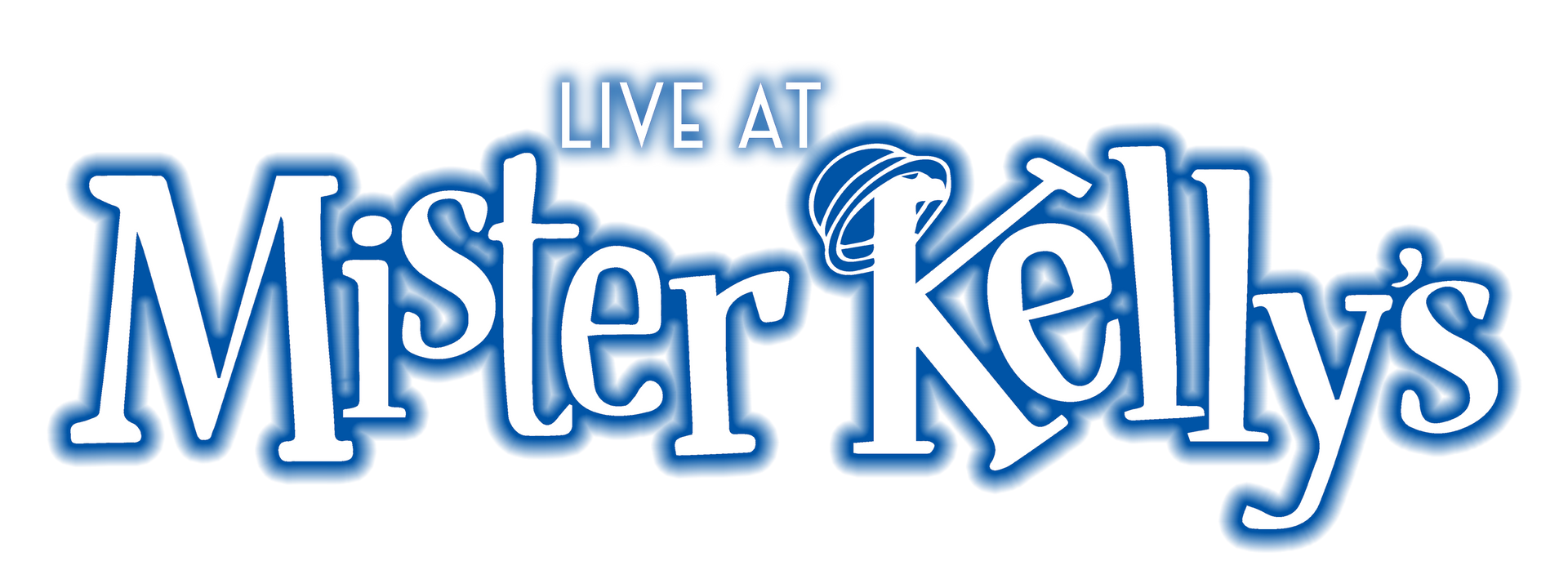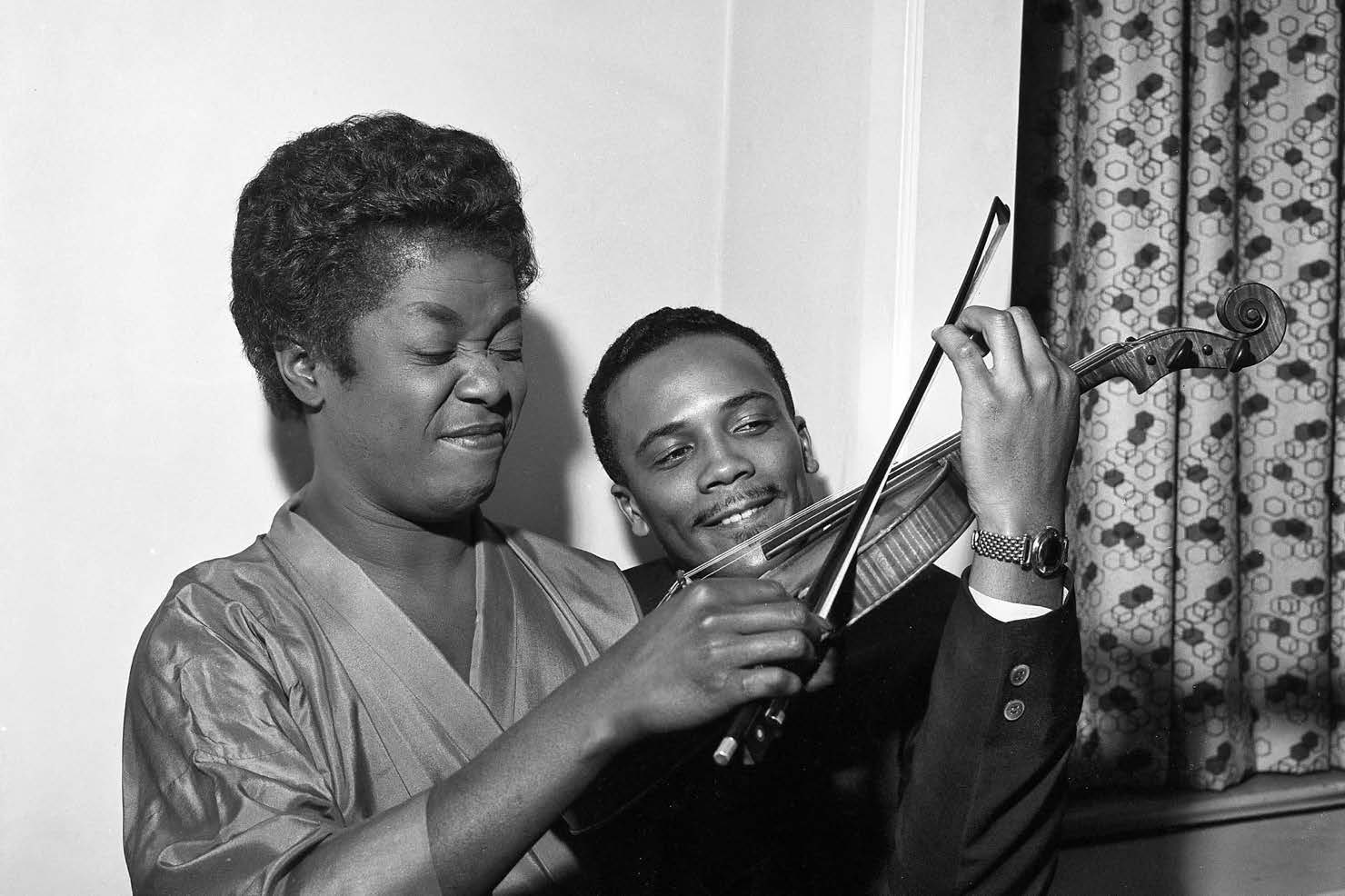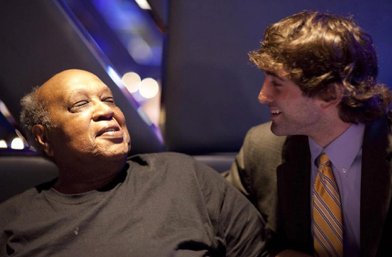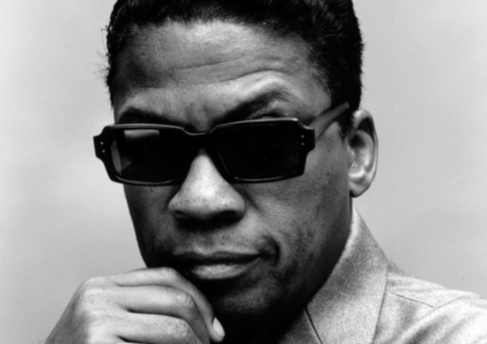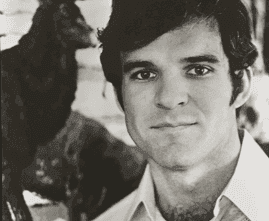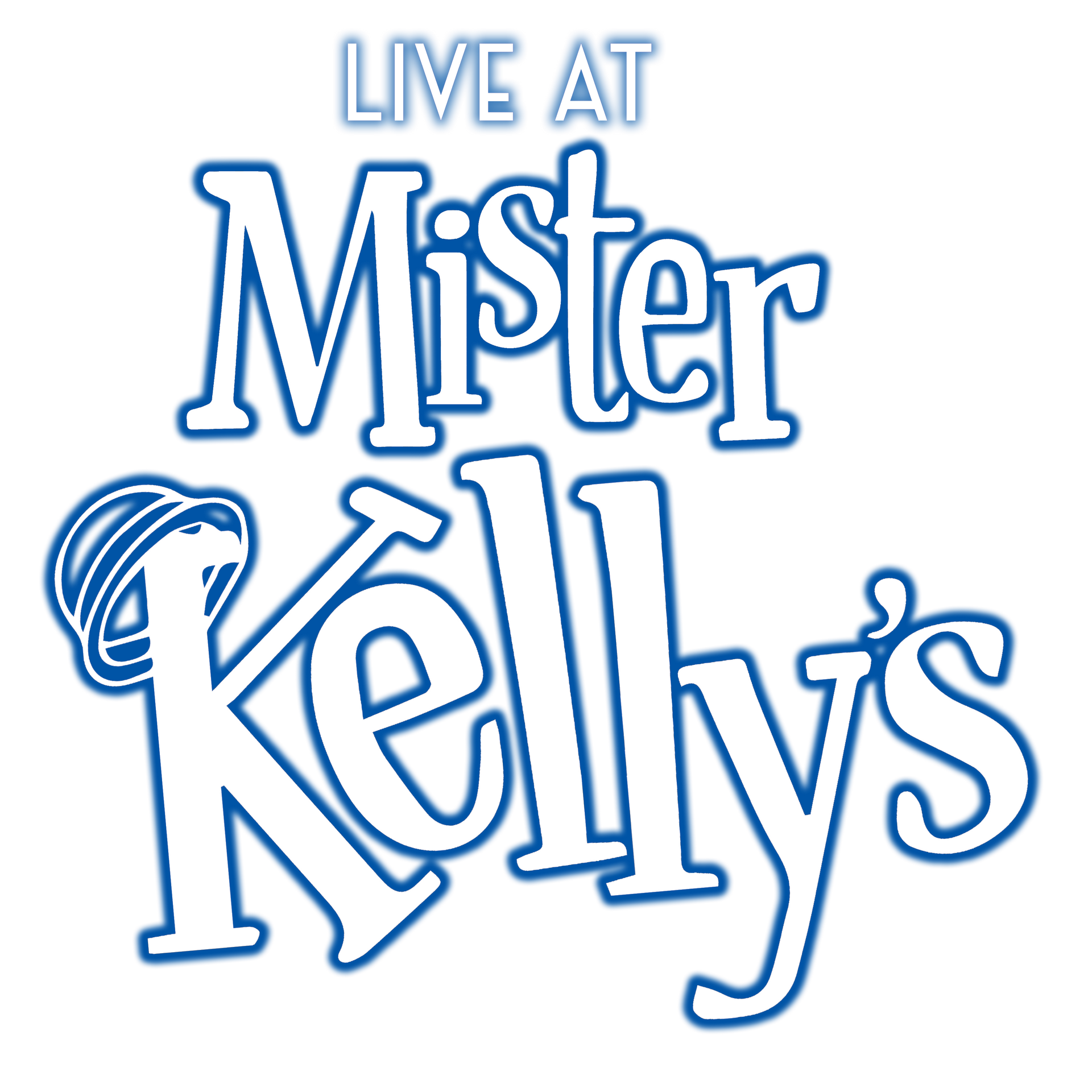That time Bob Newhart Was Bigger Than Rock and Roll
- By David Marienthal and Tory Foster
- •
- 28 Mar, 2017
- •
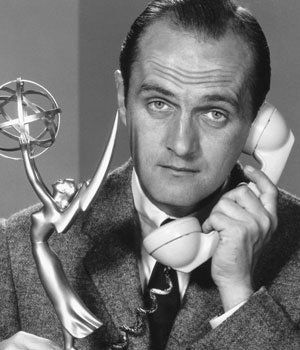
It all starts because Jim Conkling, the President of Warner Brothers, won’t do Rock music—just stuff like Joanie Sommers and the Everly Brothers— and the record label is not doing well. So Conkling comes to town and stops in to see Dan Sorkin, who was one of the top DJ’s in the country, at WCFL in Chicago. Comedy albums are just taking off and Dan says he knows someone who’s really funny— who’d been sending him little sketch-recordings to play on the radio—maybe he could help.
So Dan calls you, the funny guy. He says he knows a studio that wants to record you at your next nightclub gig. You tell him that’s going to be a problem because you’re an accountant who’s never played a nightclub in your life.
...So that's what it was like to be Bob Newhart in 1959. It took about a year for him to get on stage anywhere because the clubs didn’t want to take a chance on a guy who had never played a single night of stand-up in front of a live audience before. But then finally the Tidelands Club in Houston Texas said OK. The then 30-year-old Bob Newhart, a nine-to-five number-cruncher, could be their opening act for Ken and Mitzi Walsh (who went on to write some of the funniest stuff on the Carol Burnett show). Newhart was to do Friday night and Saturday shows, and they’d be recorded.
On Friday night, the first live performance of his career, a drunken woman was sitting right at the very front table in the room. In my interview with Bob in LA for the Mister Kelly’s Documentary, fifty-seven years later, he recalls that all through his act she had one thing to say: “That’s a bunch of crap!” Over and over. With her drowning him out, the tape for that night was ruined.
Bob figured he’d given it a shot. If this didn’t work OK, it didn’t work, he’d go back to accounting, or back to advertising. But he didn’t want to be one of those people he knew who lived their lives with regret, so he got up in the morning and recorded two shows on Saturday. That was the album: six one-sided dialogues that pointed out a little of the absurdity surrounding some fixtures of American culture that we had never asked questions about before. Abe Lincoln Vs. Madison Avenue. The Cruise of the U.S.S. Codfish. The Driving Routine. Nobody Will Ever Play Baseball, which was Abner Doubleday trying to sell the game of baseball to a marketing company that found the rules much too confining. And The Wright Brothers--trying to get a marketing company to promote the airplane, which they had just come up with: “Now, you can only go a hundred and eight feet? That’s gonna be a problem. Gonna cut our time to the coast if we have to land every 108 feet.”
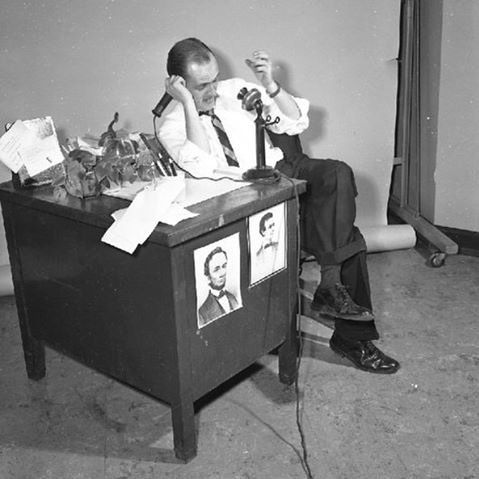
With the recording done, for better or worse, Newhart then moved on to his second gig: a club in Canada called the Elmwood Casino. “One week, 2 shows a night, and never got a laugh. They were very polite,” he says, “Canadians. Very nice. They’d look up occasionally and “Oh, that guy’s still on the stage? Oh. So I said I gave it a shot and was ready to give it up and go back to accounting because I didn’t want to do this the rest of my life –because they just stared at you! But then came the offer from Kelly’s.”
(Gather ‘round kids—especially you who might fancy a career as an entertainment mogul— because this was the visionary genius of Oscar Marienthal. He had a sixth sense about who he should book when they were still cheap, and Bob Newhart was on his list.)
Bob had recorded the album in January of 1960, and then waited and waited to hear word about it. Finally he called Warner Brothers up in April and said ‘Did you decide not to do it? Because it’s been 4 months.’ They said ‘No! We’re sending every album we have up to Minneapolis! They’re going crazy for it up there!’ And this was just about the time he was set to perform at Kelly’s.
Of his big debut night on the hottest comedy stage, Newhart says, “What I learned from Tidelands, the very first club I ever played, was that if you’re gonna walk out there as a stand up you’d better pretend like you know what you’re doing, because if you don’t, the audience will take the stage away from you. They will take the stage away. You have to look like you’re in control, no matter what’s going on. So, with all the bravado I could muster, I stood up at Mister Kelly’s.”
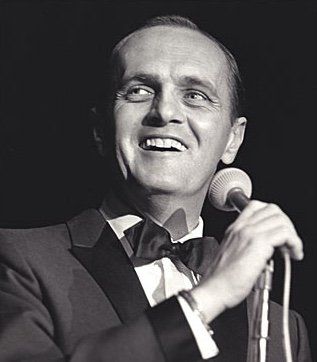
The live performance was well received at Kelly’s. But something else went even better—like through-the-roof-and-sky-high better: album sales. Because Bob Newhart, the accountant from Chicago, on his first night in front of a live audience, had made 1960’s top album in the country, a thing beyond his wildest dreams. “It was a weird thing,” he says, Comics never made it on records, but it beat out the album for The Sound of Music, Harry Belafonte, Frank Sinatra—which didn’t thrill Frank that much—and Elvis. It beat Elvis! It was unheard of, and you’re getting calls from all over the country…totally unprepared.”
Oscar had booked the unknown Bob Newhart, then dying at the Elmwood Casino, for the bargain price of $650 a week. “I thought it was an incredible amount of money to pay anybody,” Bob says. Shortly after Mister Kelly’s he got an offer from Harrah’s club in Chicago to open for Peggy Lee for $2k/week. “I said to Frank, my manager at the time, ‘Do they beat you up between shows? Why would you pay anybody $2k a week for anything?’ You know, I couldn’t believe it.” By this time he had a little more polish on stage. “I’m opening up for Peggy Lee and I thought I’d died and gone to Heaven. This is…you know, she’d do “Fever” and I’d do my 18 minutes and sit in the back and listen to Peggy Lee. It doesn’t get any better than that! Then I came back in December to play Mister Kelly’s again. And by that time the album had really taken off.”
The neat thing about Oscar’s (and later, after he died, George’s) unique skill of identifying unknown talent is that it seems to have been about more than just hunting and finding diamonds in the rough, it took on kind of causal power all its own. Oscar and George knew who was already good before a lot of other people realized it, but if they picked you, performers’ luck also seemed to magically pick up on its own, and good things started to happen to them. So I can’t help but feel that in addition to his talent, Bob Newhart had a little of the luck of the not-so-Irish behind him as he shot to fame.
As a native Chicagoan, Bob knew the power of Kelly’s at that time. He didn’t approach them for his first gig with the recording—says he wasn’t ready for them or Second City at that time. But when he did play there, it had a special significance. “I played San Francisco, I played LA, all the big cities, but to be a hit at Mister Kelly’s, that’s, that’s what it’s all about. That’s where you live, that’s where you have to go back. And yeah, the other places were very important but Kelly’s…”
Newhart wasn’t just a success as a talented individual, he was part of an unstoppable wave of fresh new voices that transformed comedy in America, bringing it to a new level of accuracy as a reflection on many different aspects of modern life. Journalists and historians have characterized them irreverent, somewhat ruthless social commentarists. “It was a real sea change in comedy,” he remembers, “Night club acts had been, about ‘take my wife, please.’ Or ‘’ll burn a hole in a coat.” These were all punch lines about being married and ‘my wife.’ ‘My wife is so neat I went to the bathroom last night, I came back and the bed was made!’ They were Henny Youngman jokes. And the young kids, they weren’t buying it. They were looking for something. And then along came Mort Sahl, and Shelly [Berman], and Lenny Bruce, and Johnny Winters, and myself. The young people—primarily college kids—would be in their dormitories and they’d get a big pizza and some beers and they’d all sit around and they’d play my album or Jonathan Winters…and there was their night club!”
Newhart was part of a rising subversive energy in the years preceding the ‘60’s cultural revolution. “They say the 50’s was very quiet. I don’t think it was that quiet. I think there were a lot of things going on underneath. Then you had Jack Kennedy, who affected a whole new generation. There was something in the air and the whole country was changing. It was very exciting.”
“I mean, Lenny was out there, knocking down. There were a lot of sacred cows being knocked down. I was doing that routine on Abe Lincoln where supposedly Abe wasn’t the man that he was, but given the tools available, [his handlers] could make an Abe Lincoln if they didn’t have one— they just had to tell him everything. The press agent had to say, ‘Abe, no, please, read the bio would you please? See? That’s what I mean…Abe, you were a rail splitter, then an attorney. You wouldn’t quit being an attorney to become a—read the bio would you please Abe? You’re screwing everything up here.’ You didn’t talk about Presidents like that. It was a quiet revolution. That’s the way I’d always seen comedy. That’s just my natural way of looking at life, and I’d just transfer that to the stage.”
Newhart’s quiet, unassuming style is intuitively confident, the opposite of the attention-pandering old-school comedians who ran around the stage frantically, sweating and all but begging for laughs. On screen his characters frequently seem almost reluctant to get the jokes out. He clarifies, with his trademark subtle irony, “I don’t stutter, I stammer. Stammerers consider ourselves at a higher level than stutterers, because stutterers have trouble with a letter. A Stammerer has trouble with the whole word. So. People have said ‘Do you—did you do that for your act?’ I say no, that’s the way I talk!’ I wasn’t the class clown, I was the guy on the edge of the crowd who’d turn to the guy next to me and say something, and he’d laugh, and the guy next to him would say ‘What’d he say?’ and when he heard it then he’d start to laugh. But I wasn’t the guy in the middle with the lampshade on my head.”
I’m beyond grateful to Bob Newhart for being who he is (instead of another guy with a lampshade on his head!) and for sharing the story of Mister Kelly’s part in his amazing rise to fame when he was just a guy off the street with a good sense of humor giving something a shot. Bob has represented America’s polite, dignified, good-hearted (but sometimes a little peeved) regular person facing the world just like us for almost six decades. And I’m happy to see that his razor wit is still loved and appreciated by so many fans. He’s still booking great roles and killing it on shows like Hot in Cleveland with Betty White, and The Big Bang Theory.
If you’ve never heard it—or if you haven’t listened to it in a long time—I highly recommend checking out his first album on Spotify. His humor is just as entertaining and spot-on now as it was when it first bounded up the charts and made people (besides Jim Conkling) forget The King, Old Blue Eyes, and Rock n’ roll!
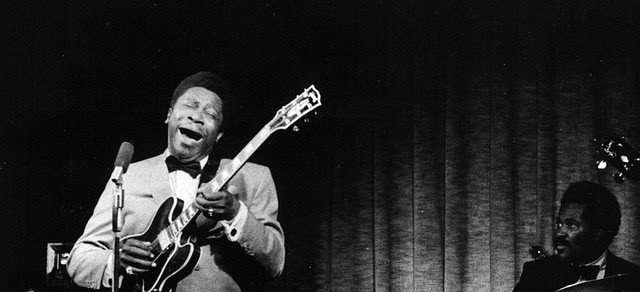
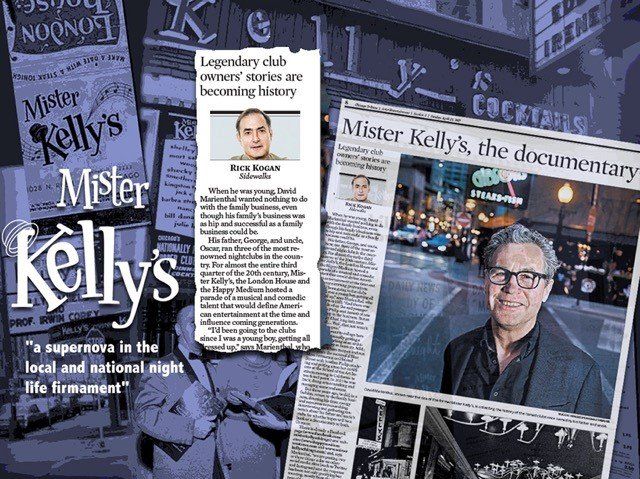
When he was young, David Marienthal wanted nothing to do with the family business, even though his family's business was as hip and successful as a family business could be.
His father, George, and uncle, Oscar, ran three of the most renowned nightclubs in the country. For almost the entire third quarter of the 20th century, Mister Kelly's, the London House and the Happy Medium hosted a parade of a musical and comedic talent that would define American entertainment at the time and influence coming generations.
"I'd been going to the clubs since I was a young boy, getting all dressed up," says Marienthal, who was born in 1951. "And there was some talk of us (he and younger brothers Philip and James) of one day getting in the business. But as a teenager I had long hair, torn jeans and …. Well, that just wasn't going to happen."
So off he went to college here and there, eventually getting a degree and working as an architect and builder in Sante Fe, N.M.; coming back here to open and run for 17 years the successful Blue Mesa restaurant on Halsted Street with brother Philip; studying and getting a teacher certificate at the School of the Art Institute; moving to California to teach and paint. In 2010 he was back, doing arts consulting and managing some real estate.
But three years ago, he did, in a fashion, return to the family business, devoting his time, energy and resources to researching, interviewing and gathering materials about his father and uncle's clubs for what he hopes will be a book or a documentary or both. Or more.
There is already a Facebook page ( www.facebook.com/misterkellyschicago ) and websites ( www.happymediumventures.com and www.misterkellyschicago.com ) and, says Marienthal, "we are posting two or three things a day on other social media sites (such as Twitter and Instagram) and the response has been not only gratifying but amazing, mostly from the 18-35 year old crowd."
This is how he puts a possible TV series — already with a script being pitched to producers — on his website:
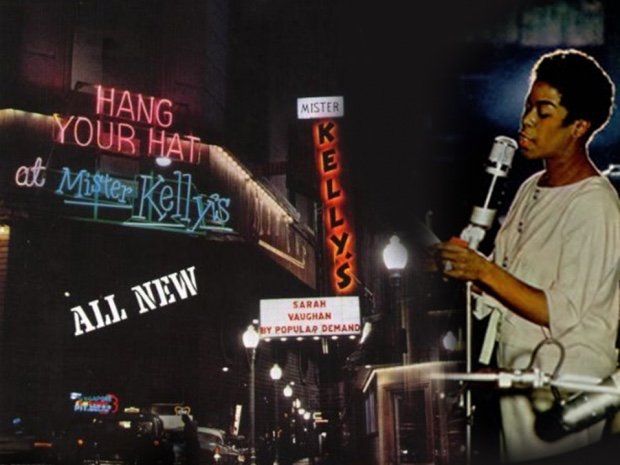
Join us to support the legacy of Mister Kelly's and the documentary film being produced by David Marienthal with WTTW Chicago Public Media, directed by Philip Koch.
This two-act concert features Kimberly Gordon, Sophie Grimm, Lynne Jordan, Frieda Lee, LaShera Moore, Daryl Nitz, Jeannie Tanner, and Ellen Winters. Musical direction by Andrew Blendermann, with Joe Policastro on bass, Phil Gratteau on drums. Special guest performance by a Chicago high school student protege from ChiArts.
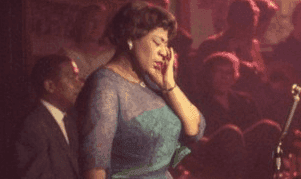
Happy Medium Ventures and Daryl Nitz Entertainment present:
Ella Live at Mister Kelly's: a benefit performance and preview for the documentary film, “Mister Kelly’s: Wasn’t It a Time?”
Monday, January 29, 2018
City Winery Chicago at 1200 W. Randolph Street, Chicago, IL 60607
$25-$40
For tickets go to Ella at Mister Kelly’s
Ella Live at Mr. Kelly's
On August 10, 1958, Ella Fitzgerald recorded her “Live at Mister Kelly’s” LP. In 2007 the concert was remastered and re-released in its entirety, including the early and late sets. This Ella centennial celebration concert presents the entire concert, without song duplication, of both sets. Featuring such songs as "Nice Work If You Can Get It," "The Lady Is a Tramp," "Summertime," "Witchcraft," "Come Rain or Come Shine," "Stardust," and many more from the classic American songbook of Gershwin, Rodgers & Hart, Porter, and others. Featuring Sophie Grimm, Lynne Jordan, Frieda Lee, Liz Mandeville, LaShera Moore, Daryl Nitz, Alina Taber, and Ellen Winters. Musical direction by Andrew Blendermann, with Joe Policastro on bass, Phil Gratteau on drums.
Mister Kelly’s: Wasn’t It a Time
Mister Kelly’s Once called a “supernova in the local and national night life firmament,” the legendary Mister Kelly’s illuminated legendary Chicago’s Rush Street, and the entire country, by launching talent like Barbra Streisand, Woody Allen, Bette Midler, Herbie Hancock, and Richard Pryor. It’s visionary owners George and Oscar Marienthal smashed color and gender barriers to put fresh, irreverent voices on stage and transform entertainment, as America knew it in the 50s, 60s, and ’70s.
Now, with the club long gone, and its star talent reaching its golden years, George’s son David, goes on a quest to collect the memories of the clubs before they are lost. Celebrity interviews now include Bob Newhart, the Smothers Brothers, Dick Gregory, Lainie Kazan, Dick Cavett, Shecky Greene and Ramsey Lewis. Interviews with dozens of local musicians, staff, family, and patrons provide a delightful balance with engaging stories, rich with vintage detail. Discussions are underway to interview Woody Allen, Lilly Tomlin, Bette Midler, Barbara Streisand, Steve Martin and others.
The film will portray through interviews, live footage, photos, music, and song, the most beloved and famous talent of our time at the decisive moments when they showed up, dug deep, and broke in. How do you change the world with a laugh and a song? Find out in a film that documents the rise and fall of one of American entertainment's great proving grounds.
Check out the hot sizzle reel and read Rick Kogan’s story in the Chicago Tribune and the links below for more about this exciting new film.
• Chicago Tribune Story: http://trib.in/2pZT07H
• Website: http://www.misterkellyschicago.com
• Facebook : https://www.facebook.com/misterkellyschicago
Happy Medium Ventures is the leading curator and steward of legendary Chicago nightlife venues, London House, Mister Kelly’s, the Happy Medium, and the Rush Street scene, from 1946-1970’s; the epicenter of Chicago’s entertainment scene. Today, Happy Medium Ventures is reviving this bygone era for a new generation of fans through an unprecedented collection of photos, recordings, press clipping. First-person interviews include key players in the Rush Street scene — from celebrity performers at London House, Mister Kelly’s and other Rush Street venues, to the employees behind the scenes, patrons of the nightspots, family and friends. Happy Medium Ventures aims to capture the fun and excitement through a documentary film, a new TV series, vibrant social media and other original content about this captivating chapter of Chicago history.
Daryl Nitz Entertainment is an event-concert production company specializing in shows that celebrate cultural anniversaries and historical recreations. Operating since 2004, with such show as “Judy at Carnegie,” “Voices of Chicago,” “Ladies Sing the Blues: a centennial birthday concert for Billie Holiday,” “It Was a Very Good Year: a centennial birthday concert for Frank Sinatra,” “Above Us Only Sky: John Lennon at 75,” “That’s Amore: a Dean Martin centennial celebration” and many more.
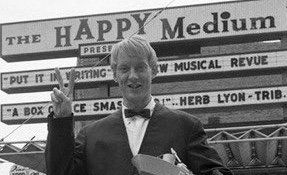
The
Mister Kelly’s team is overwhelmed by the incredibly talented and generous
people that we have met, while creating our archive of the Marienthal Brother’s
legendary nightlife empire. From colorful Rush St. regulars to famous
performers, and everyone in-between, it has been a thrill. One of the most exciting encounters has been
working with the renowned photographer, Art Shay. At the age of 95, Art is truly a legend in
his own time.
Shay began his career as a writer and journalist, but after showing a great eye for capturing images, soon transitioned into a career as a photographer. Based out of Chicago, he became one the nation premier photographers, working for major publications such as Life, Time, and Sport Illustrated. Art Shay photographed everything, from historic moments (1968 Democratic Convention) and iconic personalities (Muhammad Ali, The Rat Pack, President Kennedy), to street photography that captured the everyday life of average Americans. In the process he became one of the most celebrated artists of his medium and a Chicago legend.
In light of this, we were honored when Mr. Shay was kind enough to donate one of his brilliant works to our project recently. The print is a wonderful slice of Chicago’s Rush Street from the 1960s. The photo was taken outside of The Happy Medium and features actor Tom Williams dressed as a child, holding a toy boat.
Why is a grown man dressed as a child? Why a toy boat? Well, this can be explained. Tom Williams was part of was a comic review, produced by the Marienthal Brothers, called Put it In Writing . In the political satire, Williams plays America’s youngest president (an obvious nod to the newly elected JFK), who still has some childlike features. Put it in Writing would become the biggest play to originate at The Happy Medium and, after a long run in Chicago, it eventually made its way to New York for an off-Broadway production.
We are humbled to receive this generous gift from such a preeminent artist. The photo is a brilliant image of mid-century Chicago history, from one of the men who documented it best. The photo will be cherished and used in our mission to record this unique piece of Chicago and American history. We wish to give a heartfelt thank you to our friend Art Shay, who contributed this beautiful photo to the Mister Kelly’s archive.
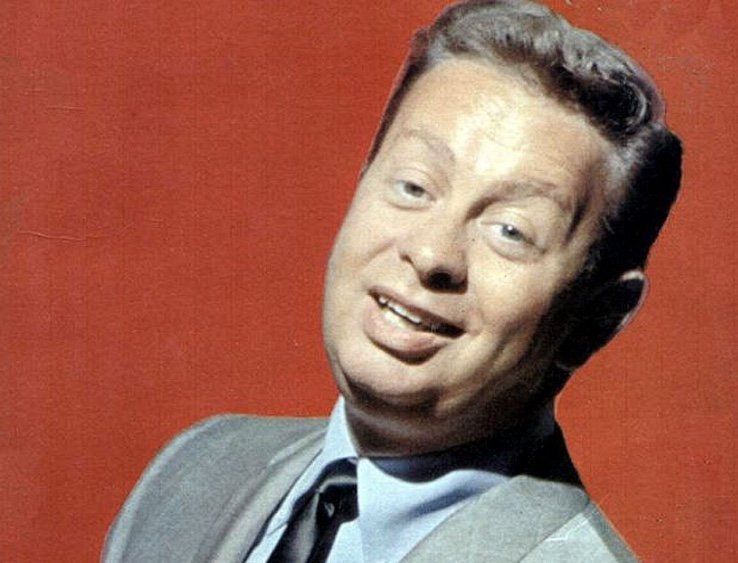
Guest Blogger Sam Fazio is a popular Chicago vocalist. He writes about Chicago’s own Mel Tormé, who appeared at Mister Kelly’s many times over the years.
A Kid from the South Side
Born Melvin Howard Tormé in 1925 on the south side to Jewish Russian immigrants, he started singing at a very young age of four with the Coon-Sanders Orchestra, performing at Chicago's Blackhawk restaurant. He continued his early career on radio series, playing drums and writing songs—all before high school graduation.
